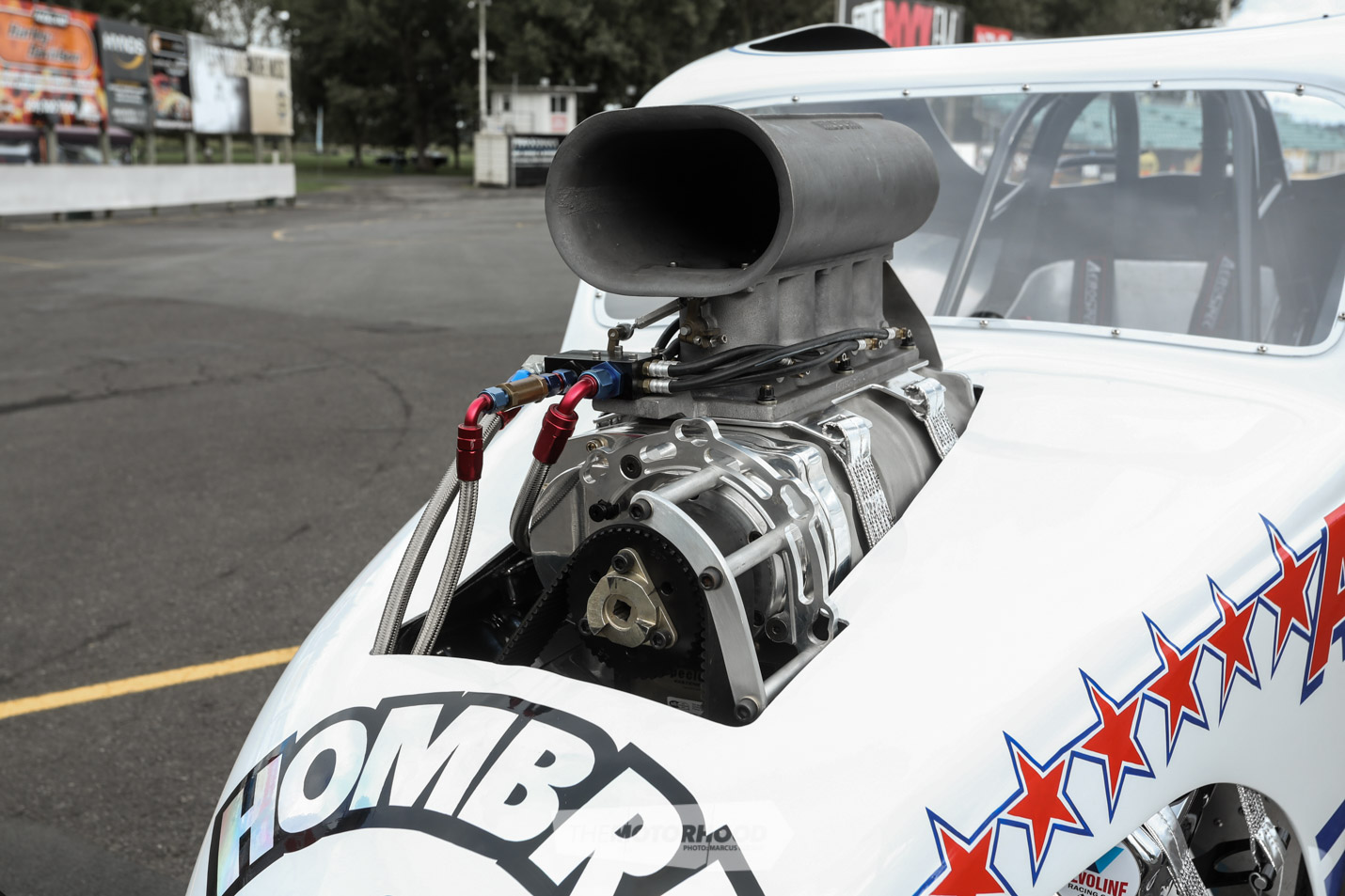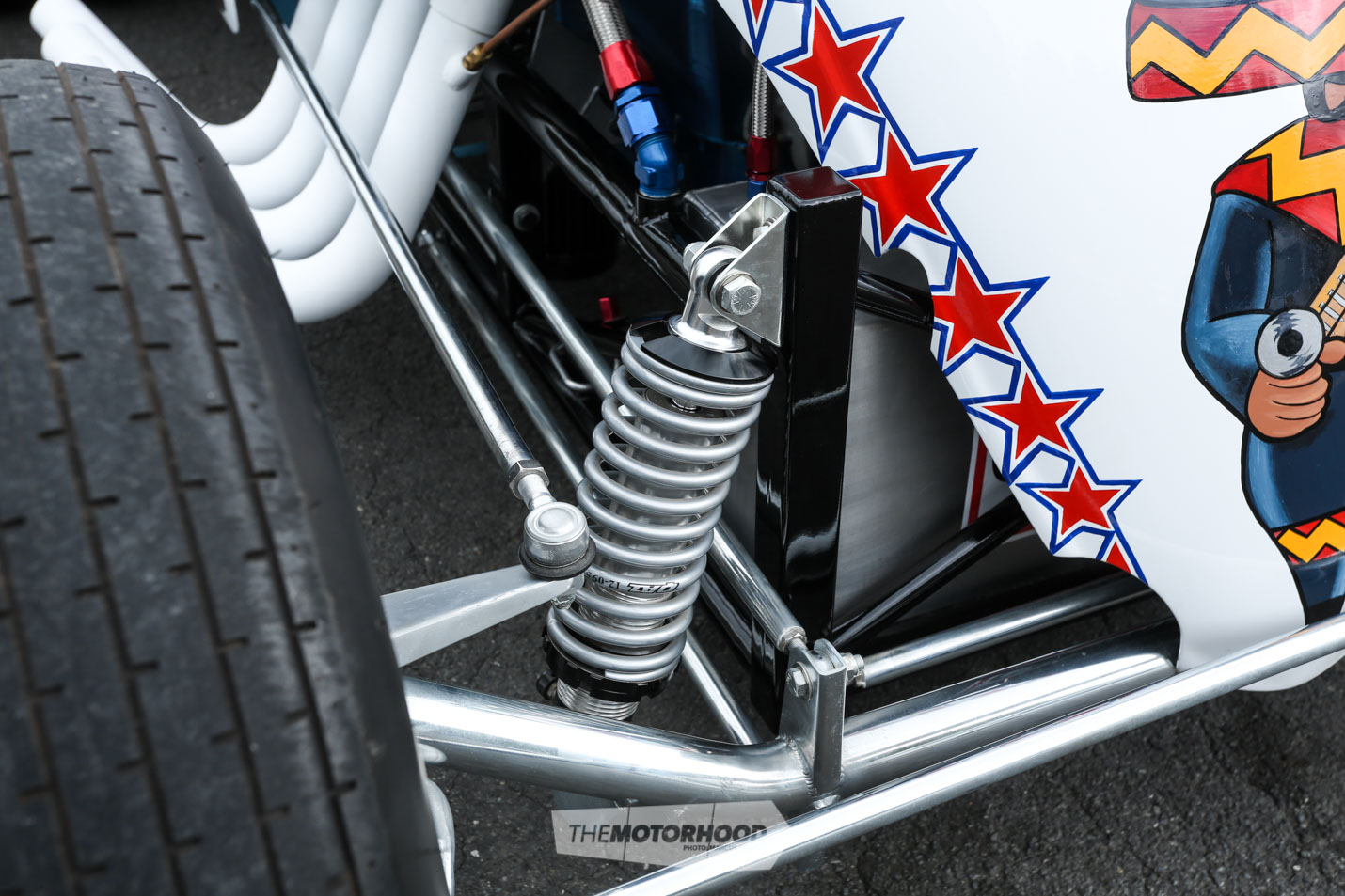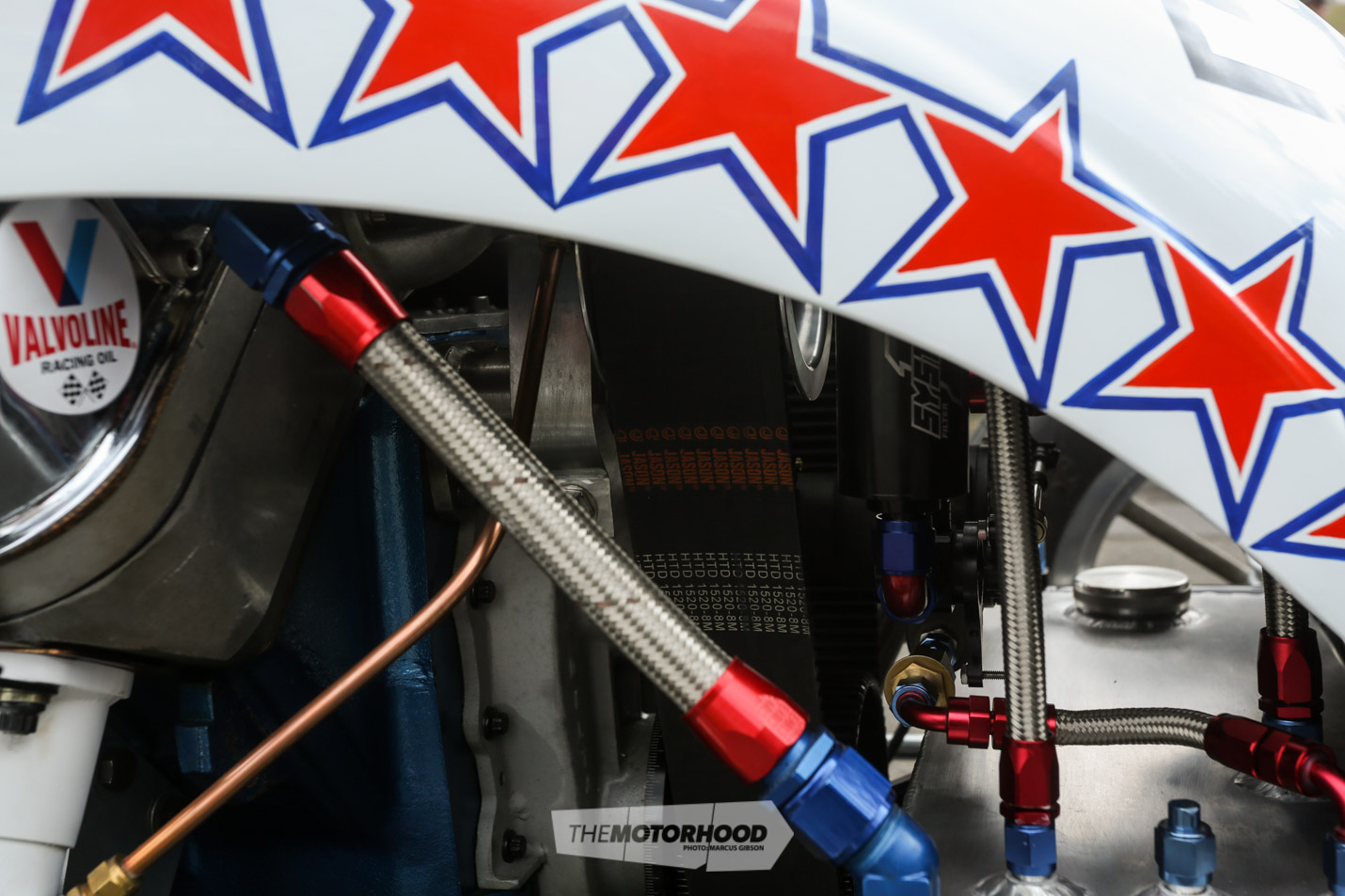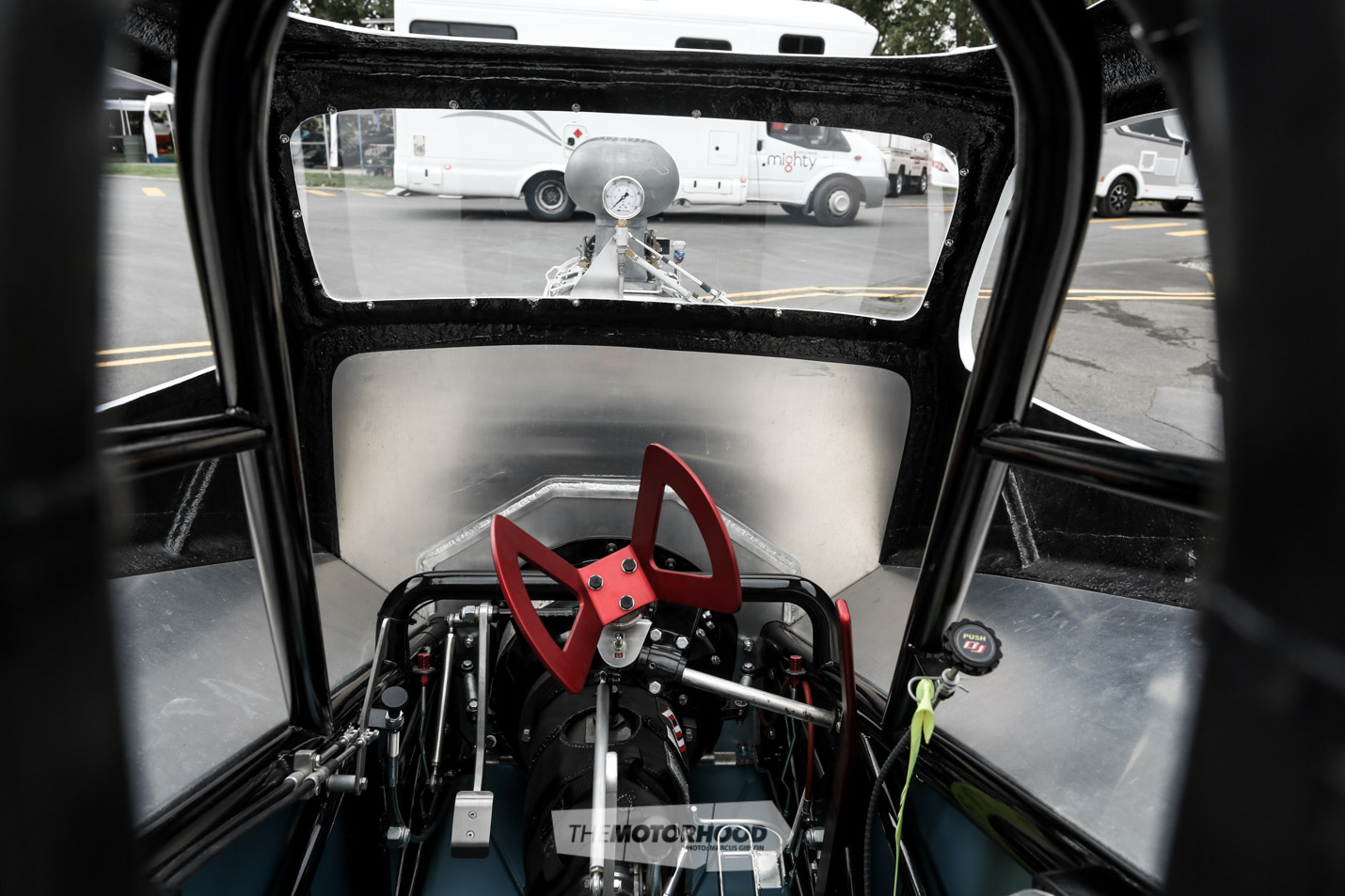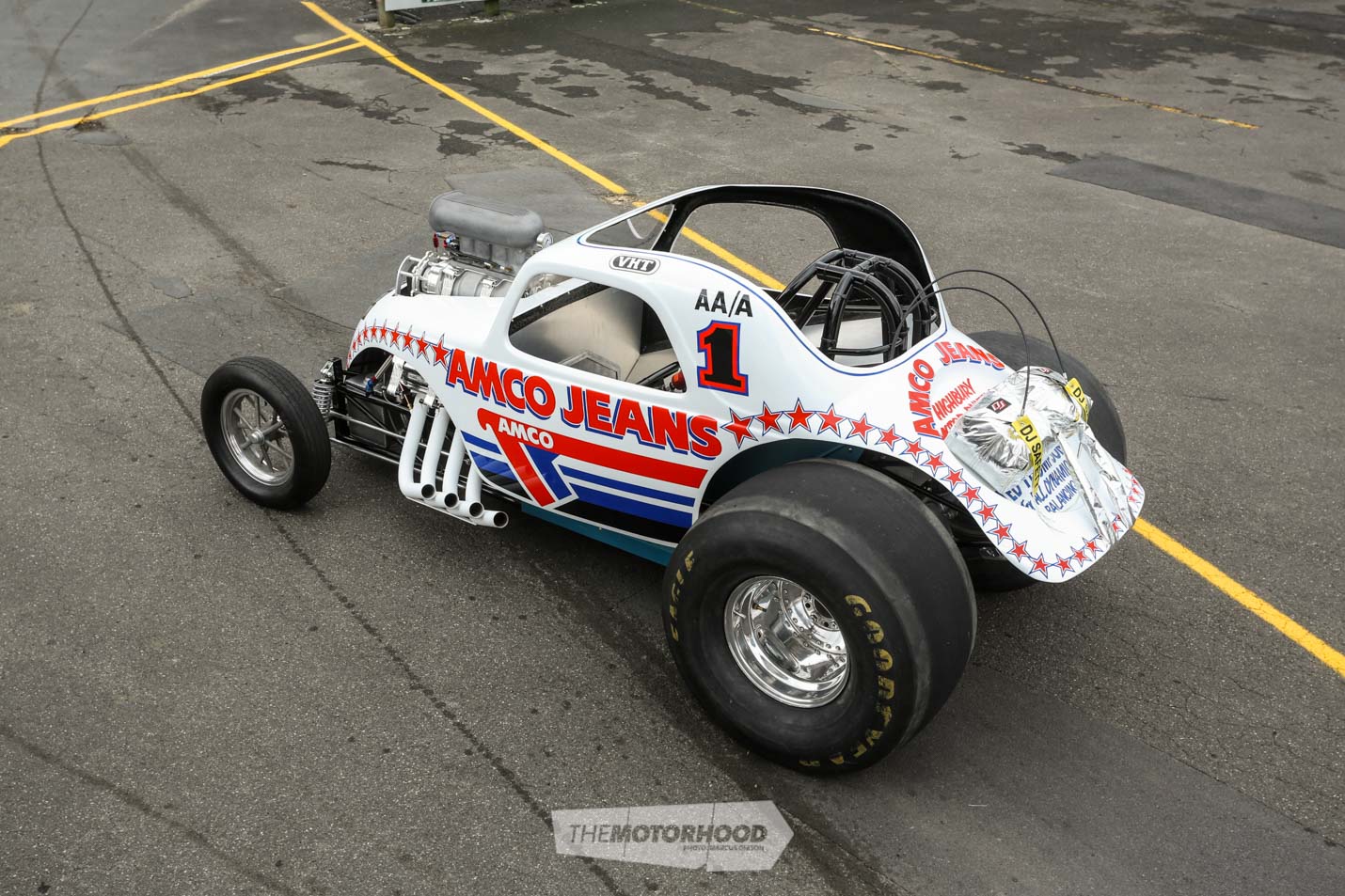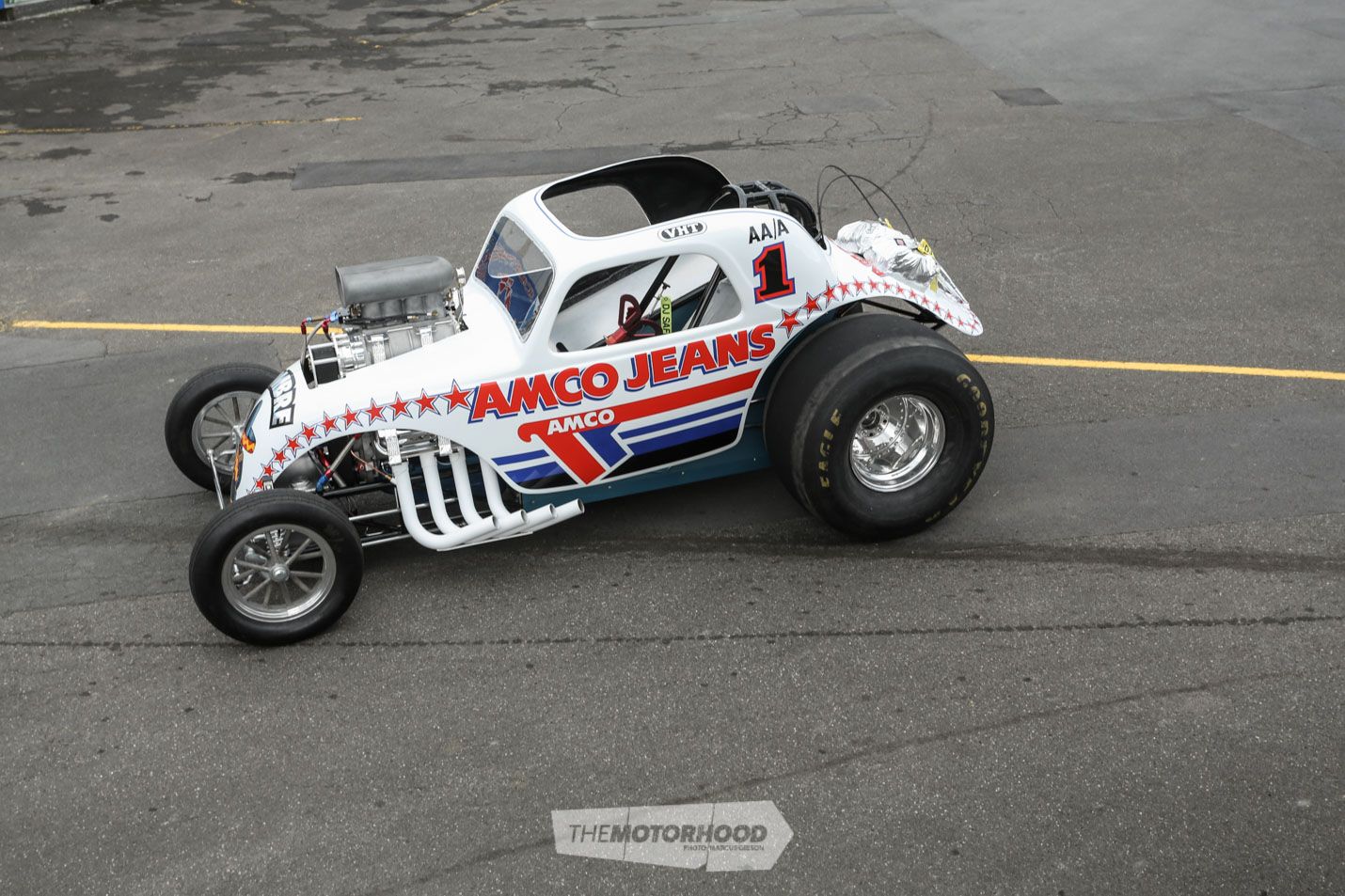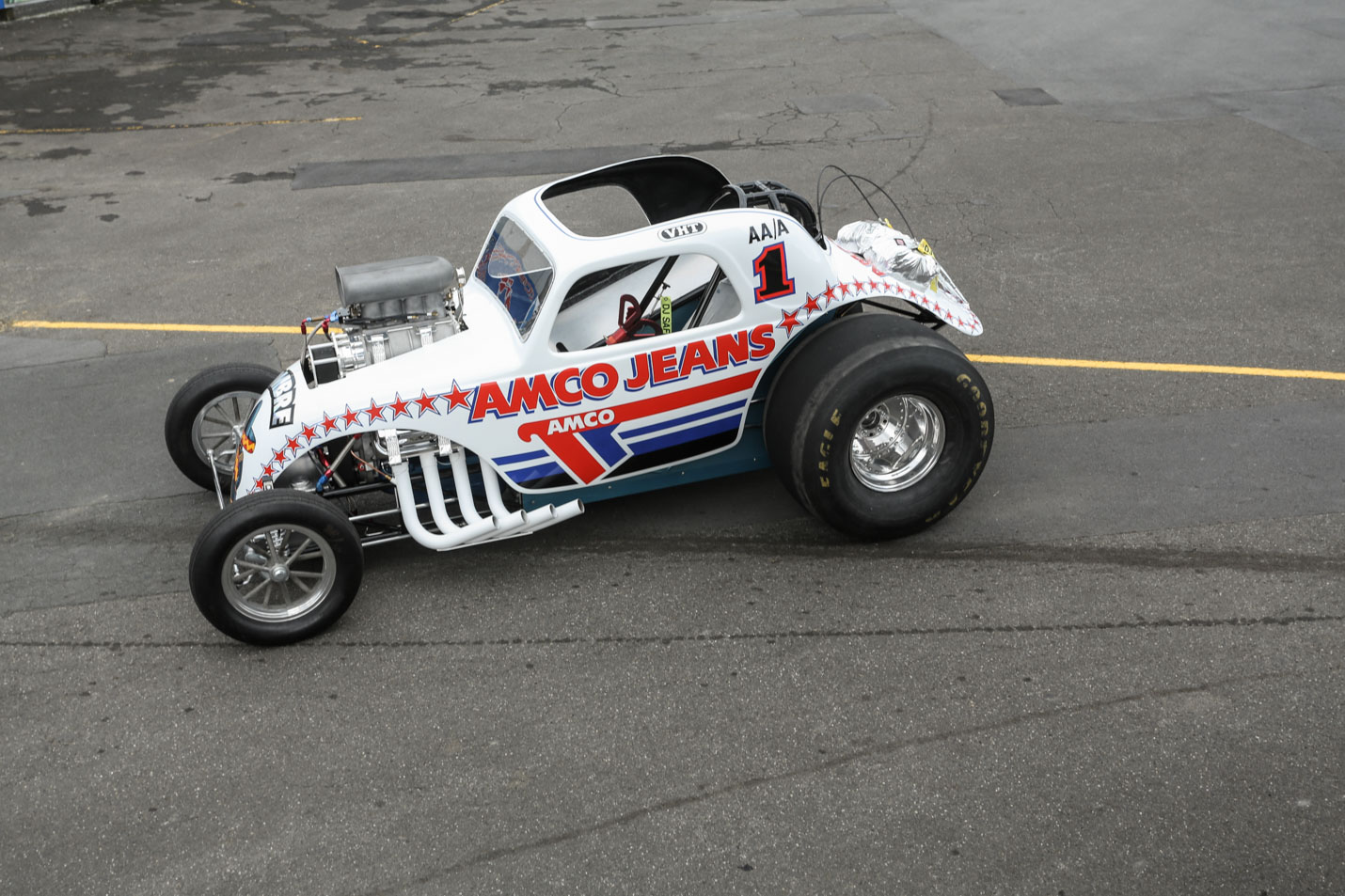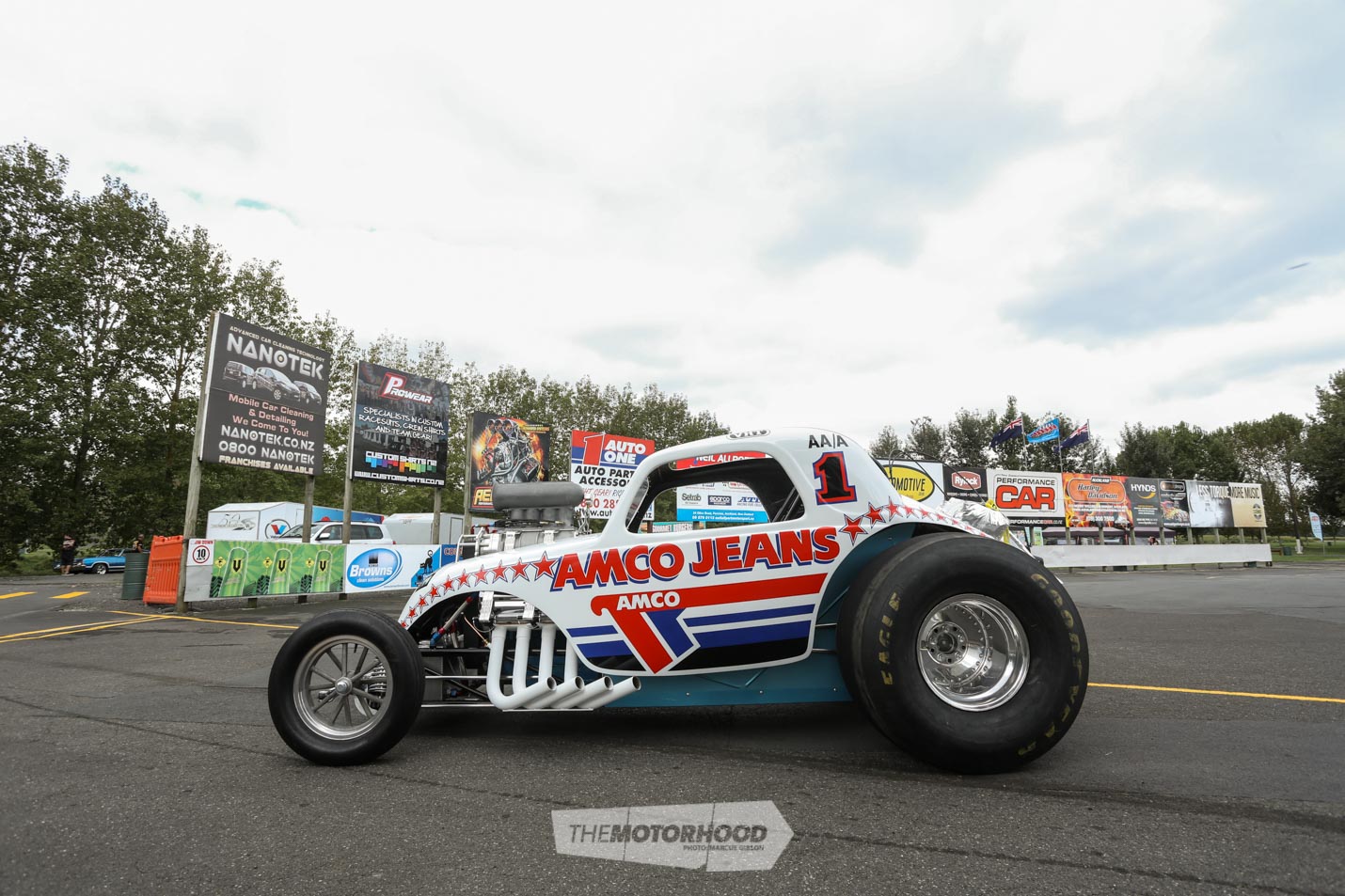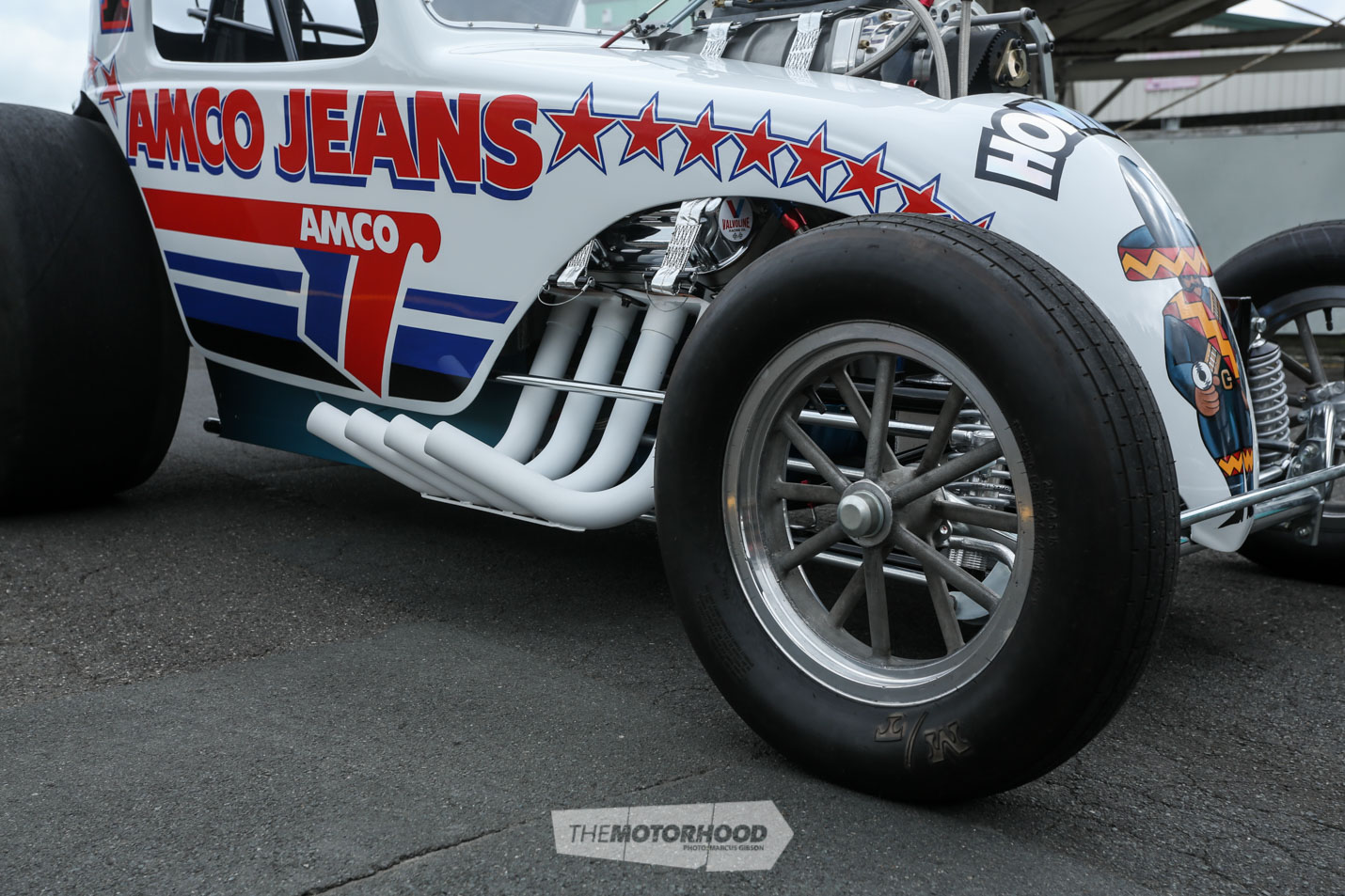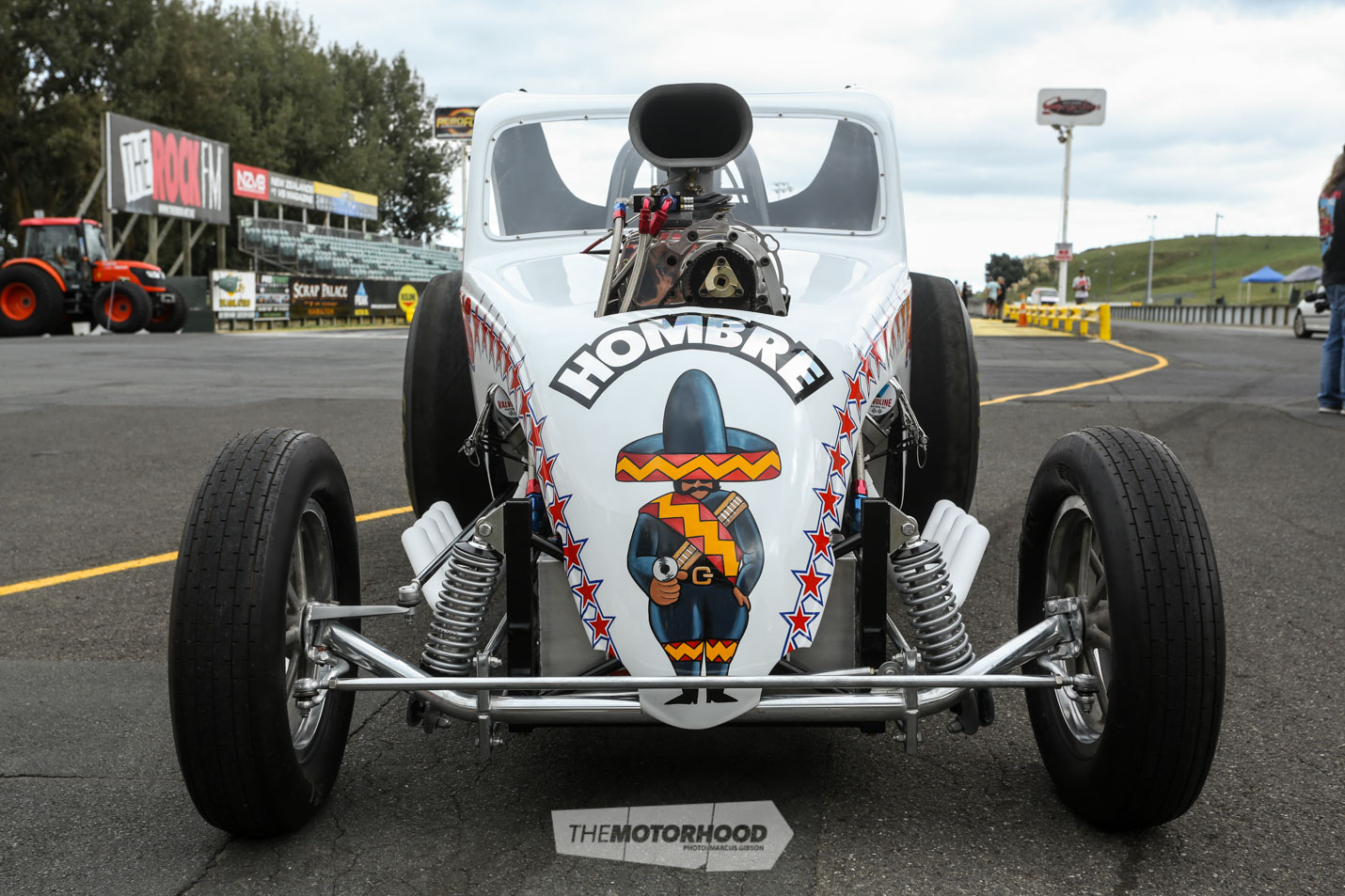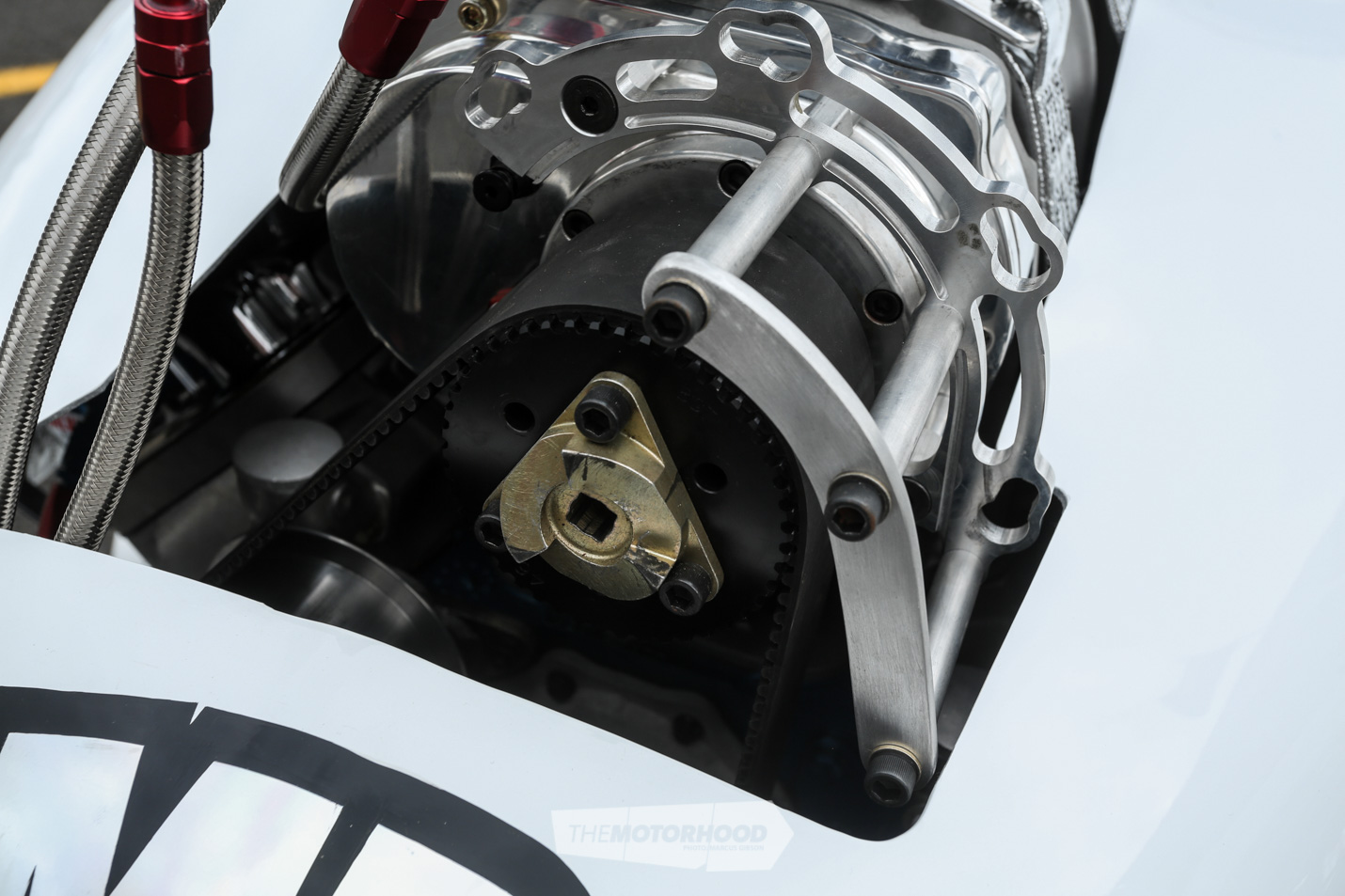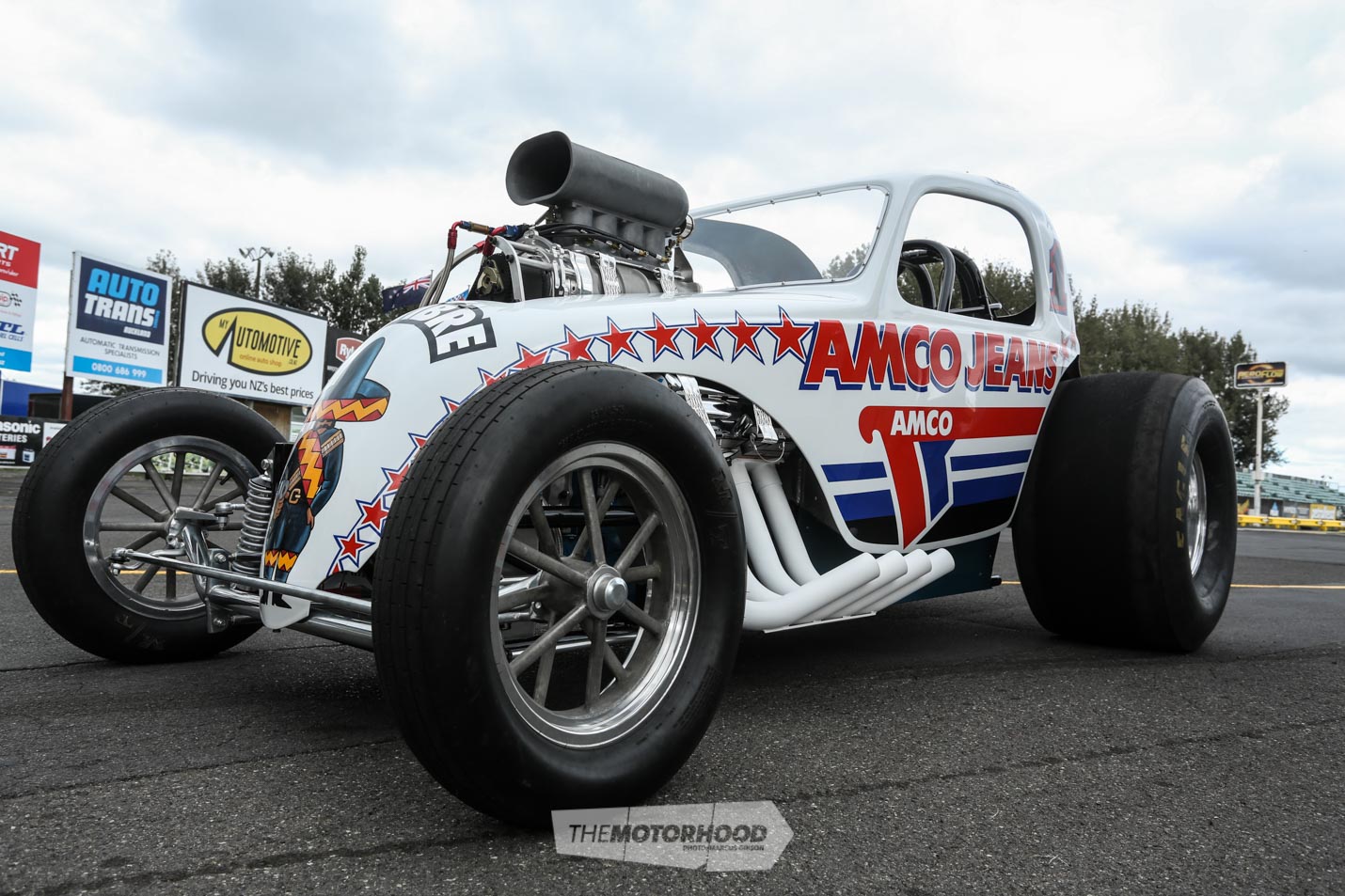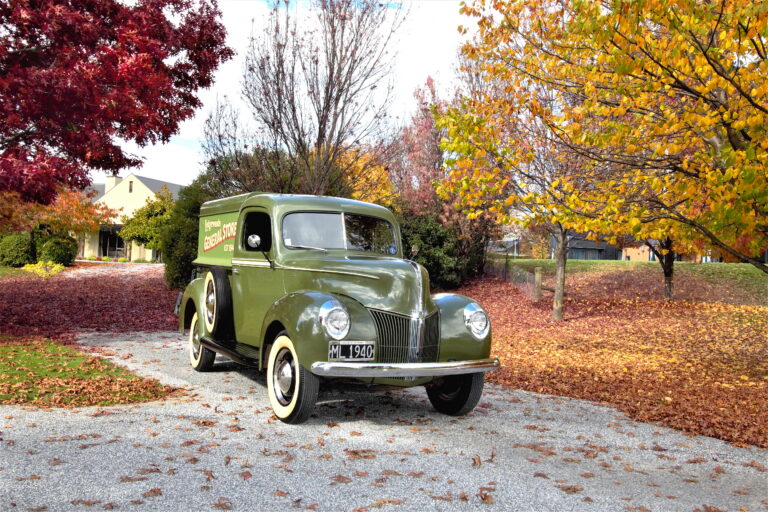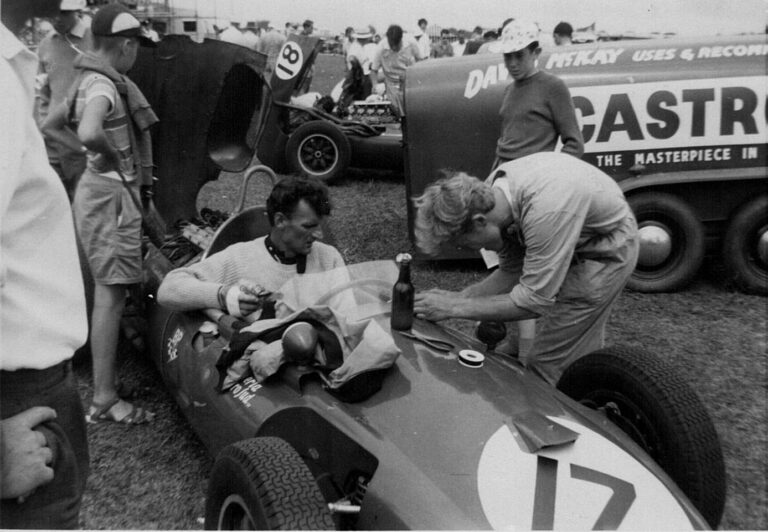It doesn’t matter what your tastes are — if you don’t think ‘Hombre’ is anything but the duck’s nuts, you’re plain delusional. You don’t even have to be familiar with the screeds of history that this car — which is the real deal, we might add — possesses, as a significant member of local drag racing folklore. Just looking at it is enough to tell you that this is a special machine.
It’s special because it had the Pete Lodge touch. One of the stalwarts of drag racing in New Zealand, Pete Lodge is the stuff of legend. While his name is almost always associated with ‘Baloo’ — widely regarded as New Zealand’s first real drag car. Baloo represented a time when DIY was all Kiwis had, and represented a quintessentially Kiwi approach to making a cutting-edge engine work with whatever was available.
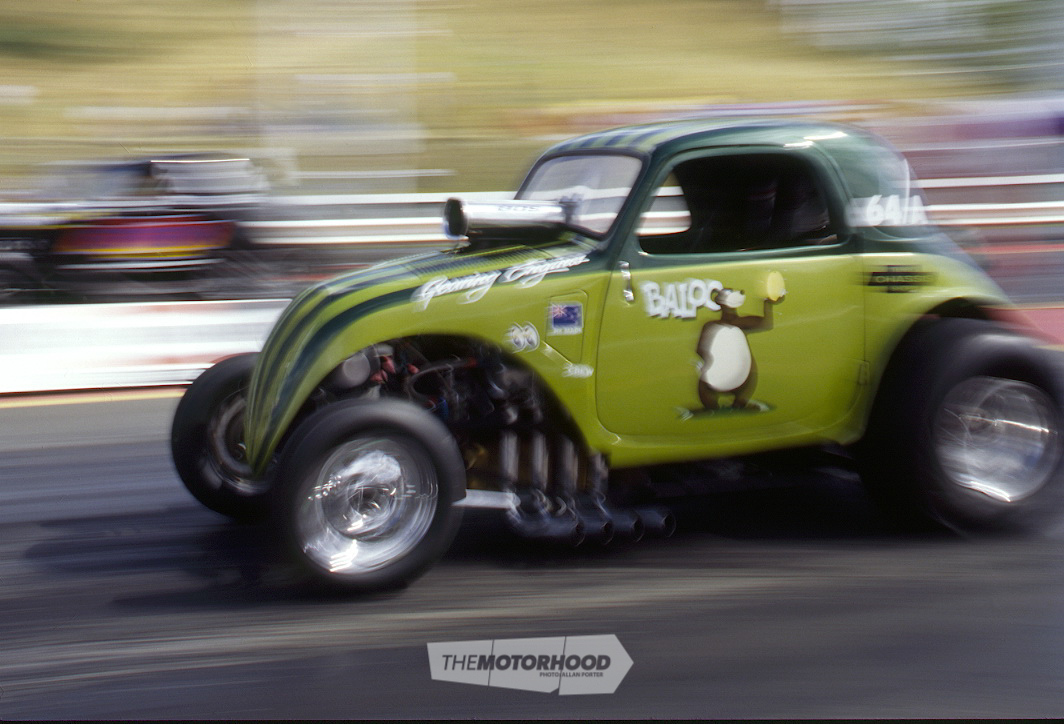
Graduating to Hombre in the mid ’70s, the substantial knowledge that Peter and his crew — Alan, Brent, and Arn — had gathered was put to good use. Beneath the fibreglass Topolino body was a state-of-the-art chassis designed by Alan and built by Peter, and the tried and tested blown and injected 392ci Chrysler Hemi providing the firepower. Topped with a 6-71 supercharger and Hilborn four-port injection, you can bet that Hombre pulled no punches.
People who were around to watch Hombre in its heyday remember Hombre’s unbridled fury on display — a seriously loose unit from burnout through to the traps.
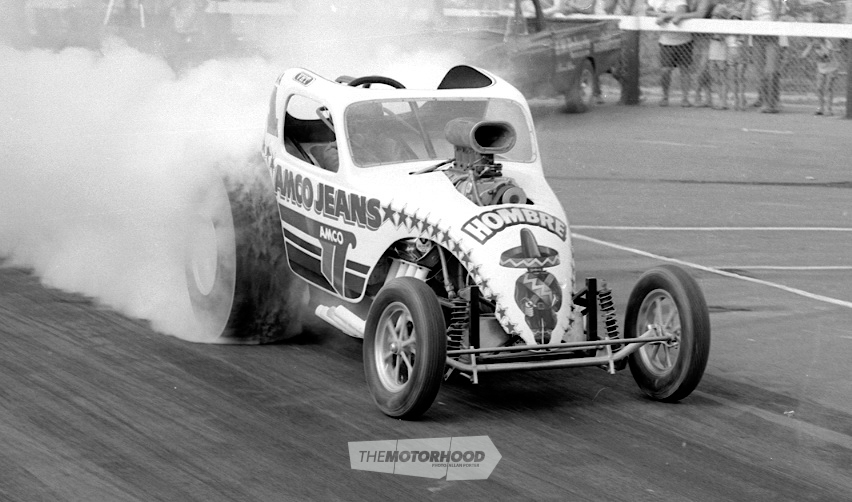
It was around this time that drag racing began to be regarded as a more professional form of motor sport, and from this era of big-brand sponsorship, many will remember Hombre as the Topolino sponsored by Amco Jeans. It was back to Hombre’s most famous iteration that its present owner, Grant Stables, chose to restore it.
But back to the ’70s — Hombre’s popularity was second to none, and with good reason. Sure, the wild passes and blazing burnouts were great, but Hombre also delivered. Nine-second passes were a given, followed by eights, and it wasn’t long before Peter ended up setting a standard that would last almost as long as the car’s impact upon the scene
The year was 1977, and the meeting was the NZ Drag Racing Nationals at Champion Dragway. Pete enjoyed a string of passes as expected of a machine like Hombre, and entered the Top Eliminator final against none other than Mike Gearing. Mike Gearing is a man who knows more than most about nitro, and he sure did back in 1977. Peter Lodge was the clear underdog, but took the win on Mike’s red-light, and forced those seven-odd seconds into the memories of all who were there on that day.
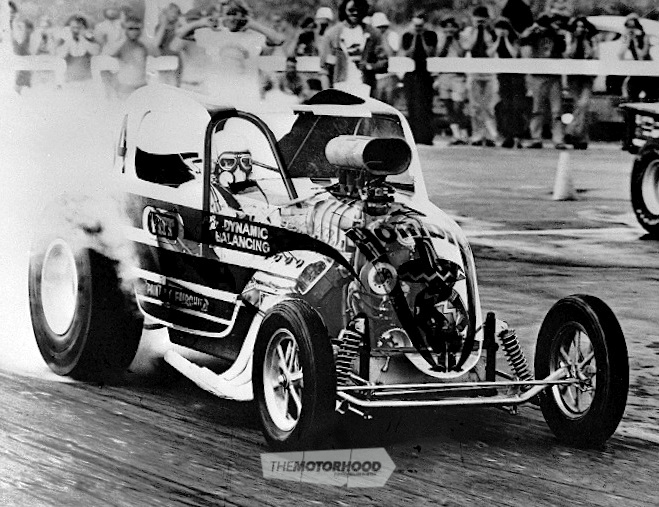
Why? The resulting 7.67-second pass wasn’t just a personal best, but the Fuel Altered record, and would not be broken for almost 40 years, until Dave Gauld finally smashed it on January 10, 2016, running his ‘Nitemare’ Fuel Altered to a 7.490s at 176mph and a 7.565s at 178.90mph.
Apart from a brief appearance in Australia later in 1977, that momentous occasional would be the last most Kiwis would see of Pete and Hombre as, in his own words, “We had finally conquered the mountain and there was nowhere left to go — it was time to focus on family.”
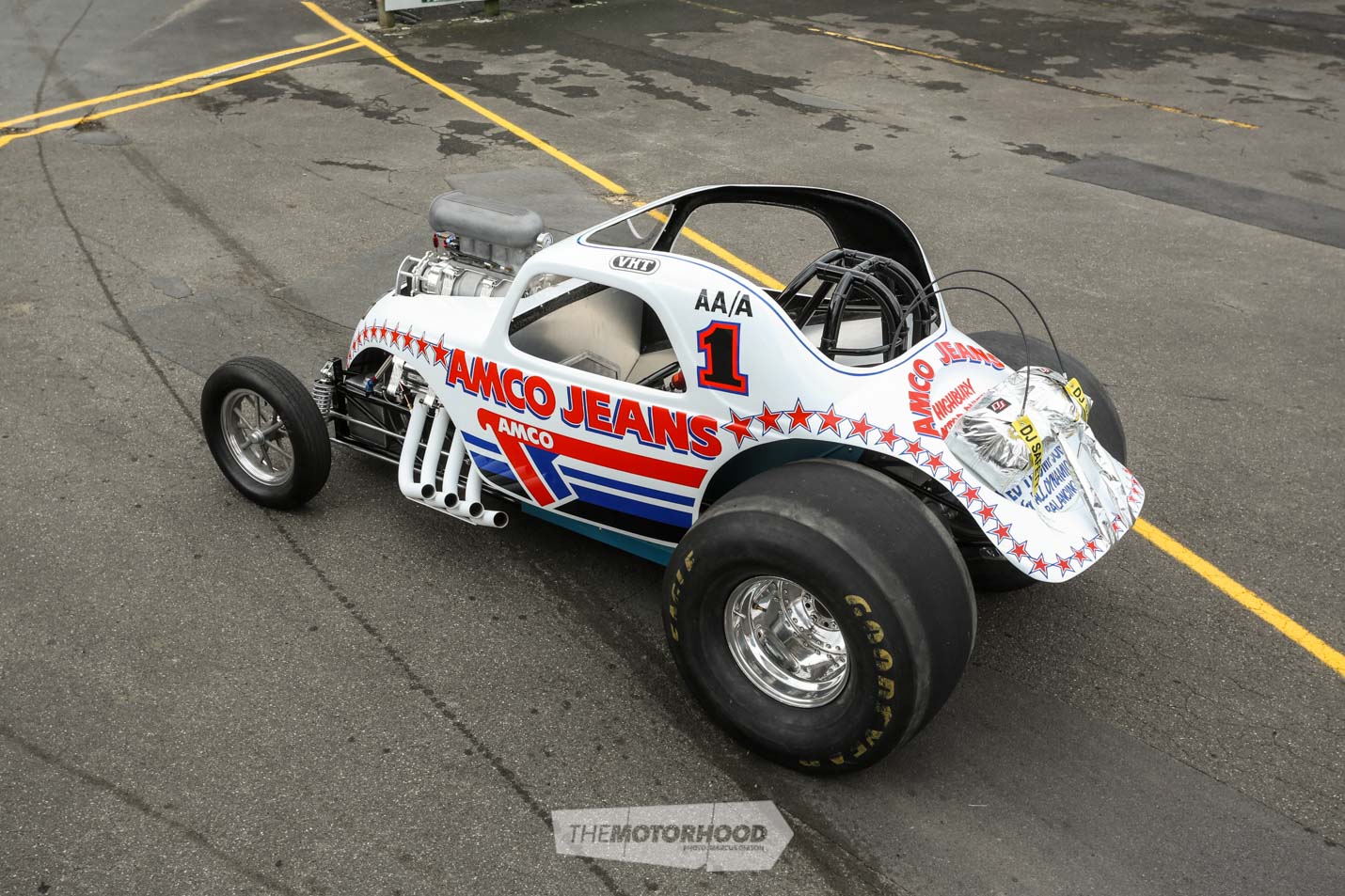
Legend doesn’t die easy, and even those who were not present on the day will know the significance of the name ‘Hombre’. Grant Stables is one such person who understands Hombre’s significance, to the extent that when he was presented with the opportunity to own the car, he couldn’t only do so — he also had to rebuild it the only way he could, in that iconic 1977 guise
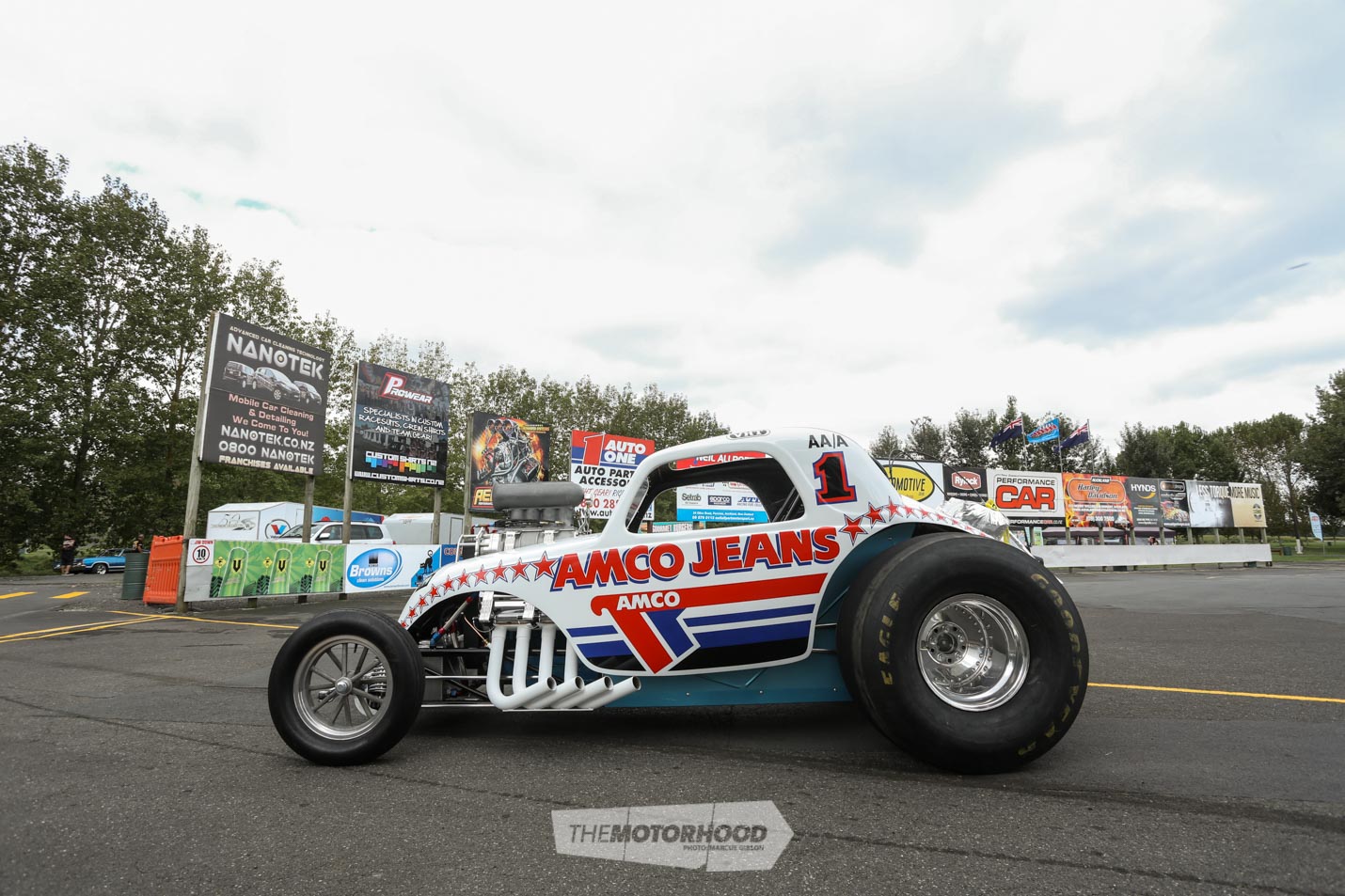
As you can see, Grant’s ensuing six-year restoration left no stone unturned, and didn’t just result in something that looks the part. Starting with a rolling chassis, the bones were all Hombre, although far removed from how it would have been remembered by the public. The original fibreglass body and moly tube chassis had been stretched, and Grant, no stranger to working with his hands, had performed much of the work in returning both body and chassis to its as-raced-in-1977 specifications — a Topolino-shaped body over a 100-inch wheelbase.
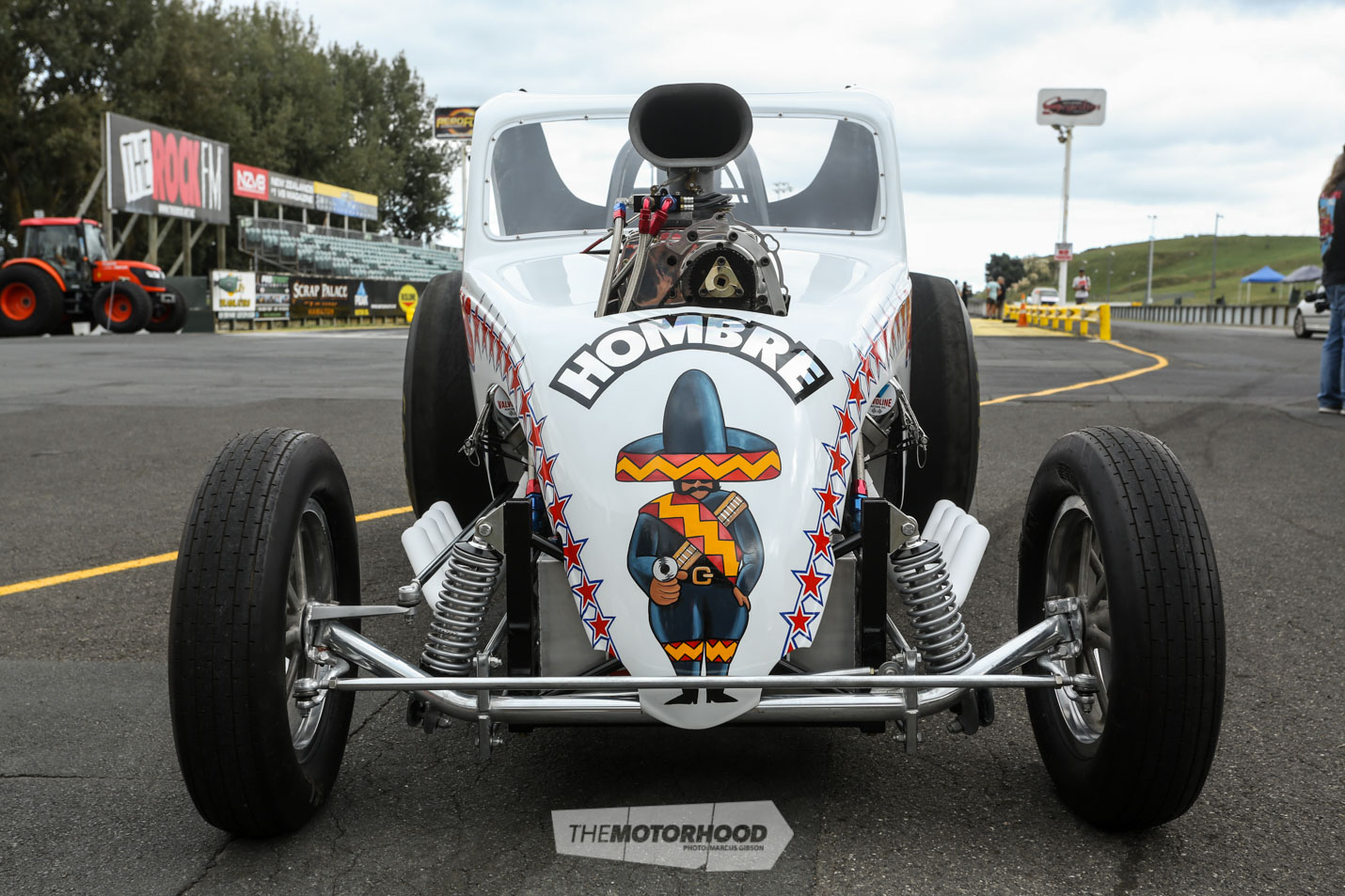
Assistance was provided by Peter Lodge where necessary, as, despite Grant’s talents, he knows where to draw the line. This line was drawn firmly before it came time to build the only appropriate motor — a 392ci Hemi. For this, Grant supplied everything needed to take Peter up on his offer to build the engine.
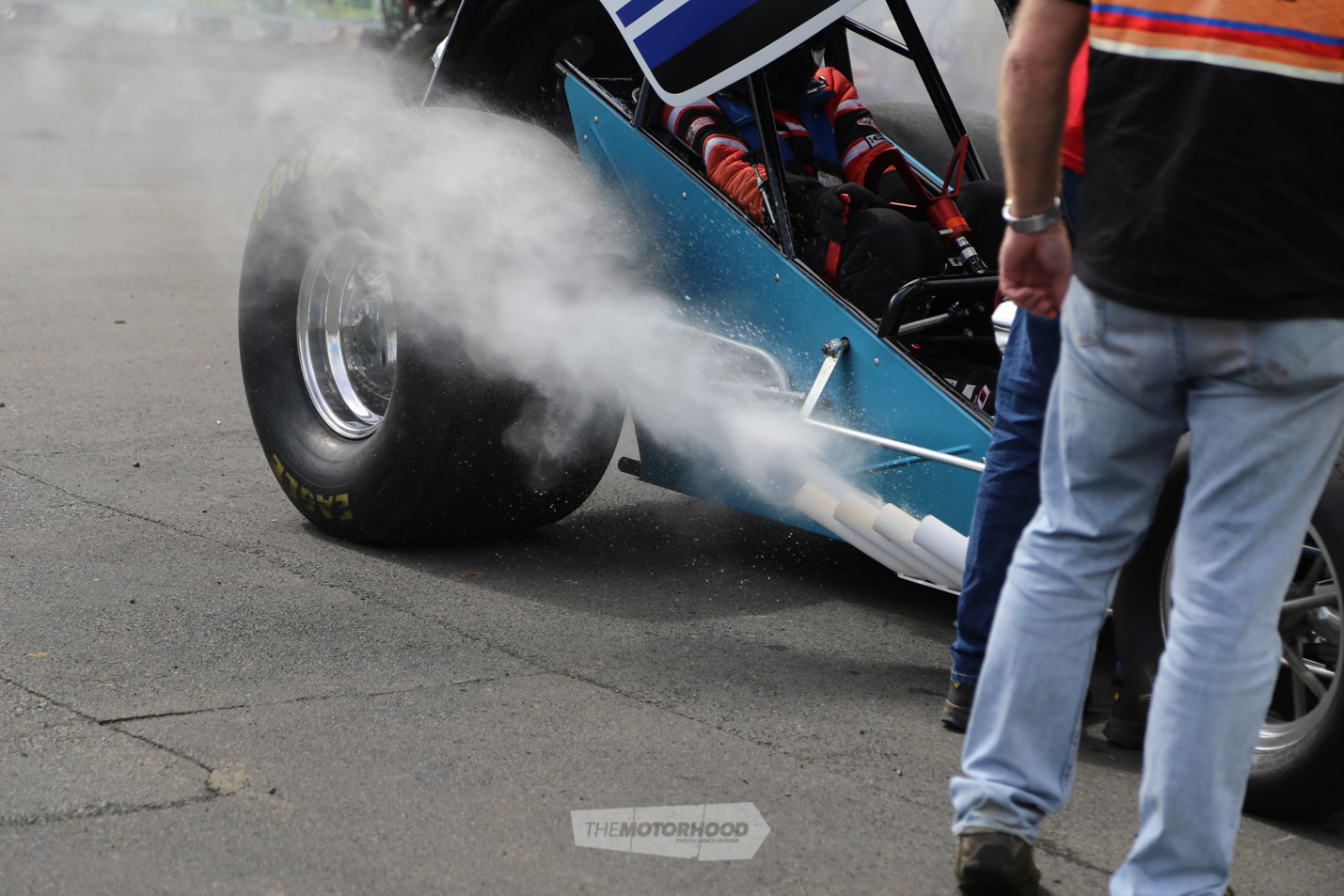
The low-compression bottom end has been built to suit the potent cocktail of forced induction and nitro, although it’s far less obvious than the visual tellers that this is a serious piece of kit. That custom set of ‘zoomie’ headers was fabricated in the likeness of the originals, while the top end retains the proven combination of a 6-71 supercharger and Hilborn four-port mechanical injection. It’s a brutally simple combination, finished off with the only acceptable ignition system — a Mutha Magneto.
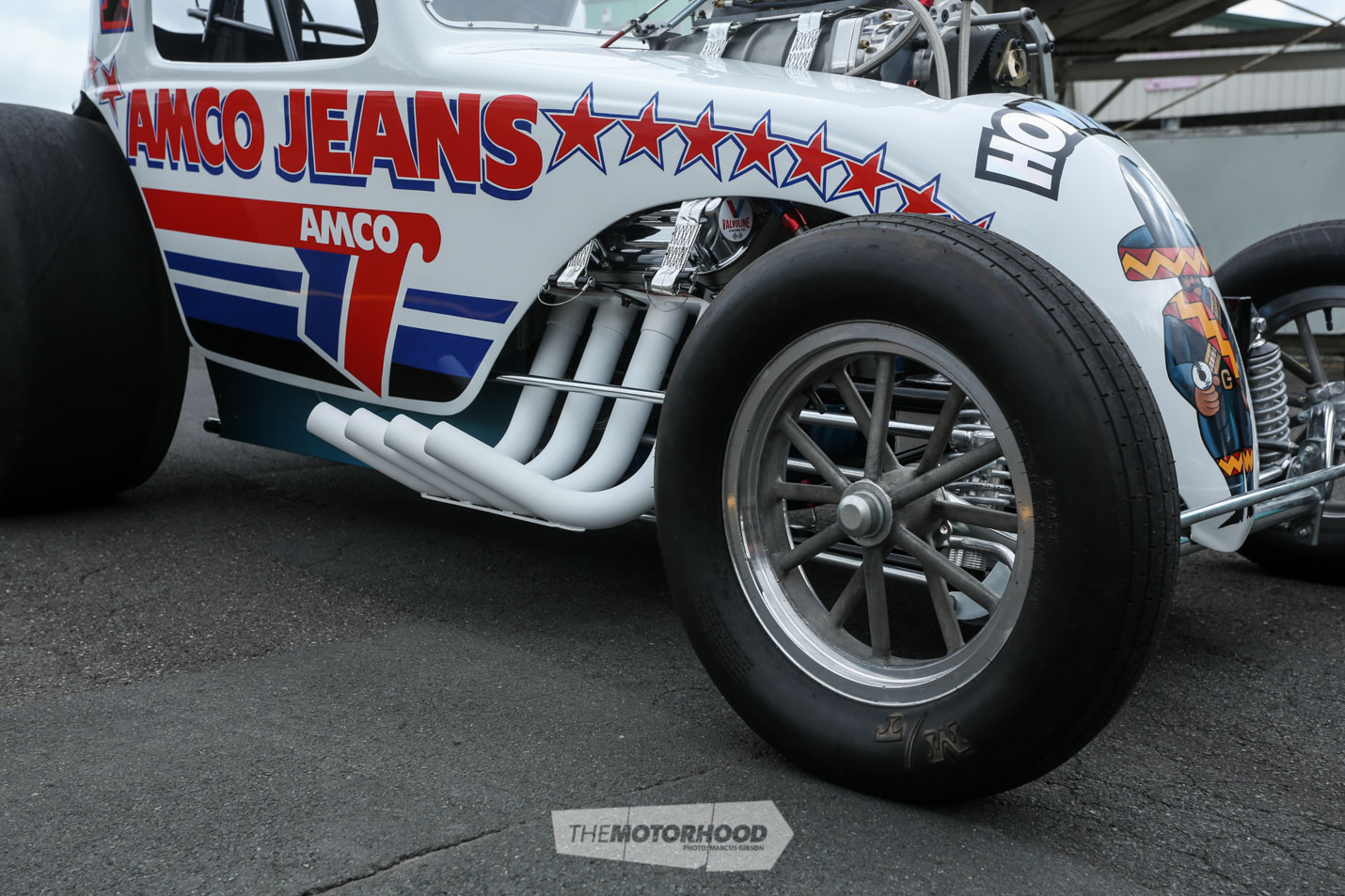
The transmission is a manually-shifted Lenco two-speed backed by a Ford nine-inch diff, with full-spool centre and floating axles. Up front, it’s that ’70s simplicity all over again, with a tube front axle hung off a pair of simple coilover shocks. That front axle also wears a pair of real-deal vintage jewellery — genuine 12-spoke B/C Speed magnesium wheels that California-based Kiwi expat Squeak Bell kindly offered up for sale upon learning of Grant’s project.
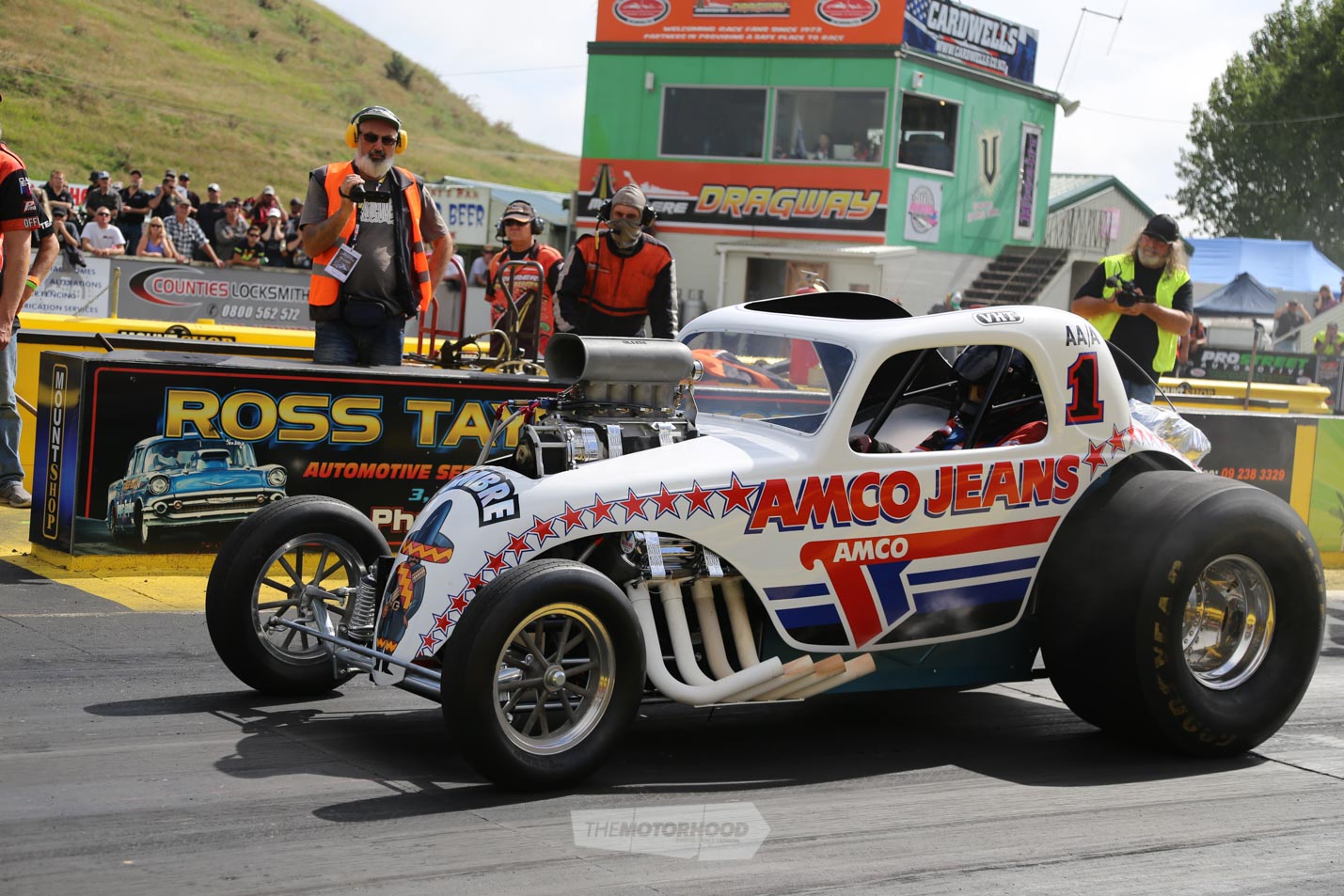
It was earlier in 2017, at this year’s Nostalgia Drags, where that project made its eagerly-awaited return. Grant gave Shane Lodge — Peter Lodge’s son, and a Top Alcohol dragster driver himself — the opportunity to take Hombre down the strip. It was a mild pass, with none of the fury the little Topolino is capable of unleashing, but it didn’t need to be. It looks like Hombre and sounds like Hombre, because it is … and Hombre is back.
Information sourced from NZV8 archives and Grant’s online build thread. Still photos by Marcus Gibson at Nostalgia Drags 2017, action photos by Lance Farrow at Nostalgia Drags 2017, and historical photos courtesy of Allan Porter’s archives.

